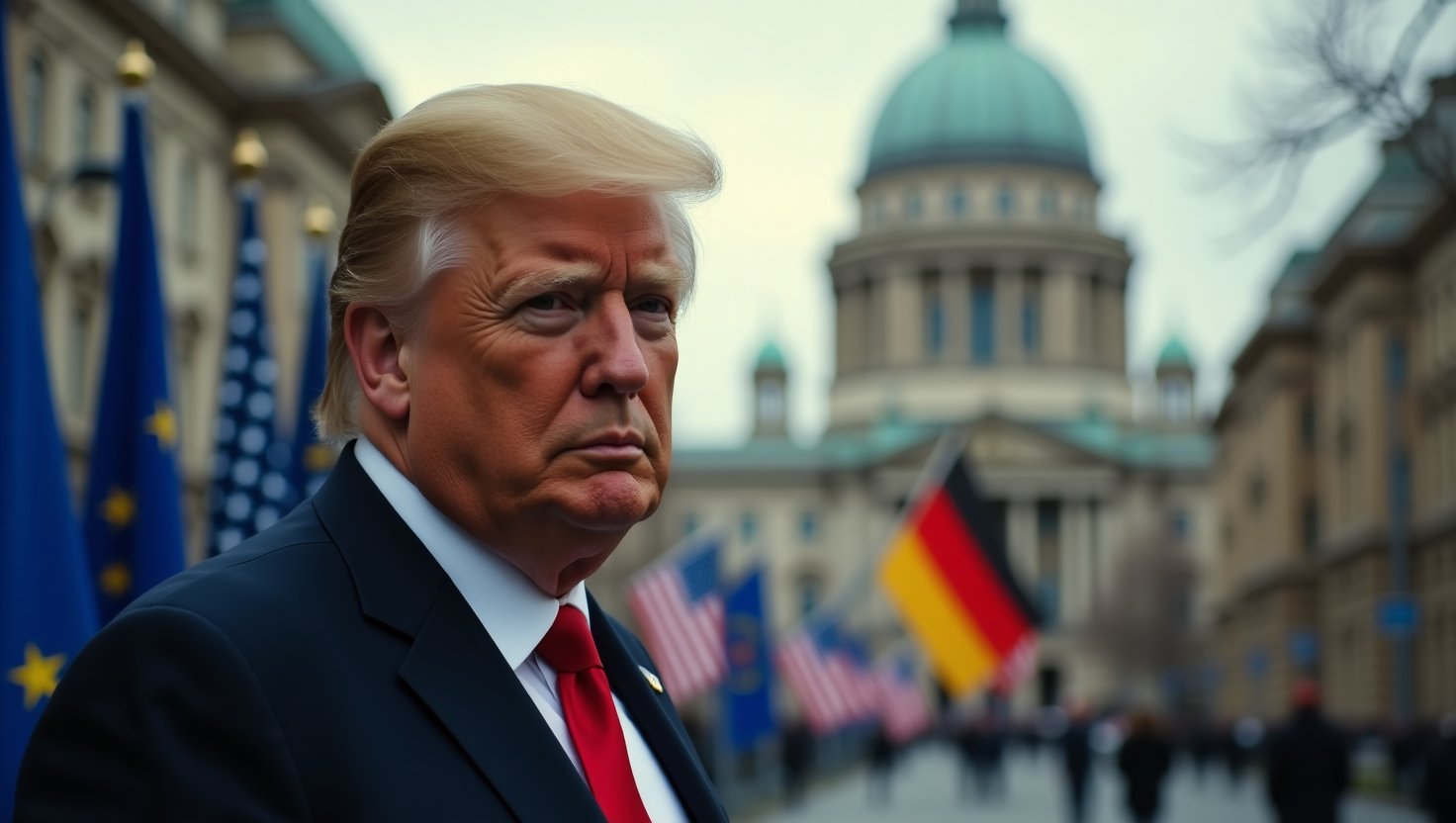Germany has long been regarded as Europe’s economic powerhouse, driving growth and stability across the continent. As the global political landscape shifts, questions arise about its continued role and the potential for external trade agreements, particularly with figures like Donald Trump proposing direct deals. This article delves into these aspects to determine Germany’s current economic stature and trade dynamics.
Germany: Europe’s Economic Powerhouse
Germany has consistently stood at the forefront of the European economy. With its robust industrial base, export-driven policies, and sound fiscal management, it not only survived the eurozone crisis but also emerged stronger than many of its neighbors. Key to its success has been the integration of longstanding economic policies, such as the social market economy, and a strong emphasis on manufacturing and innovation.
Despite recent challenges like the energy transition, demographic shifts, and global trade tensions, Germany remains central to European prosperity. Its automotive and chemical industries lead global markets, and its mittelstand, or small-to-medium-sized enterprises, form the backbone of its economic structure. In addressing whether Germany remains the engine of Europe, it’s crucial to consider these foundational aspects that have consistently driven its growth.
The Complexity of EU Trade Deals
Trade policies form a significant part of European Union governance, with all member states collectively benefiting from negotiated agreements. When it comes to crafting these deals, the EU operates as a single entity, setting tariffs and regulations that member states must follow. This unified approach offers strength and leverage, especially in negotiations with economic powerhouses like China and the United States.
However, this collective approach can sometimes slow individual countries’ ability to react swiftly to global market changes or form specific partnerships. While Germany is a dominant player within the EU, it is still bound by these shared regulations and frameworks. Therefore, crafting a direct trade agreement with any non-EU country, like the United States under Trump’s potential leadership, presents a complex challenge.
Can Trump Forge a Bilateral Trade Agreement with Germany?
The potential for Donald Trump, or any U.S. leader, to establish a direct trade deal with Germany alone, while intriguing, encounters significant obstacles. Within the EU framework, Germany cannot independently negotiate trade deals, as these responsibilities fall under the jurisdiction of the European Union. This ensures a cohesive trade policy, preventing fragmented strategies among member states.
Any potential move by Germany to engage directly with the U.S. would not only disrupt EU norms but could also set a precedent for other member states. While theoretically conceivable, the political, legal, and economic implications of such a step would likely outweigh the benefits. As the EU values unity in its trade policies, Germany is unlikely to bypass this framework for a direct deal with the U.S.
In conclusion, Germany remains a vital engine within the European economic landscape due to its innovation and industrial prowess. However, any effort by the U.S. to sidestep the EU and forge direct trade agreements with Germany would confront extensive legal and political barriers. Hence, Europe’s future economic trajectory continues to be shaped by collaborative efforts and shared policy goals within the EU framework.



